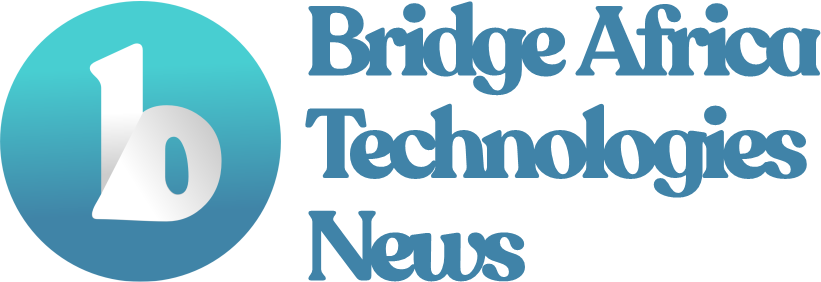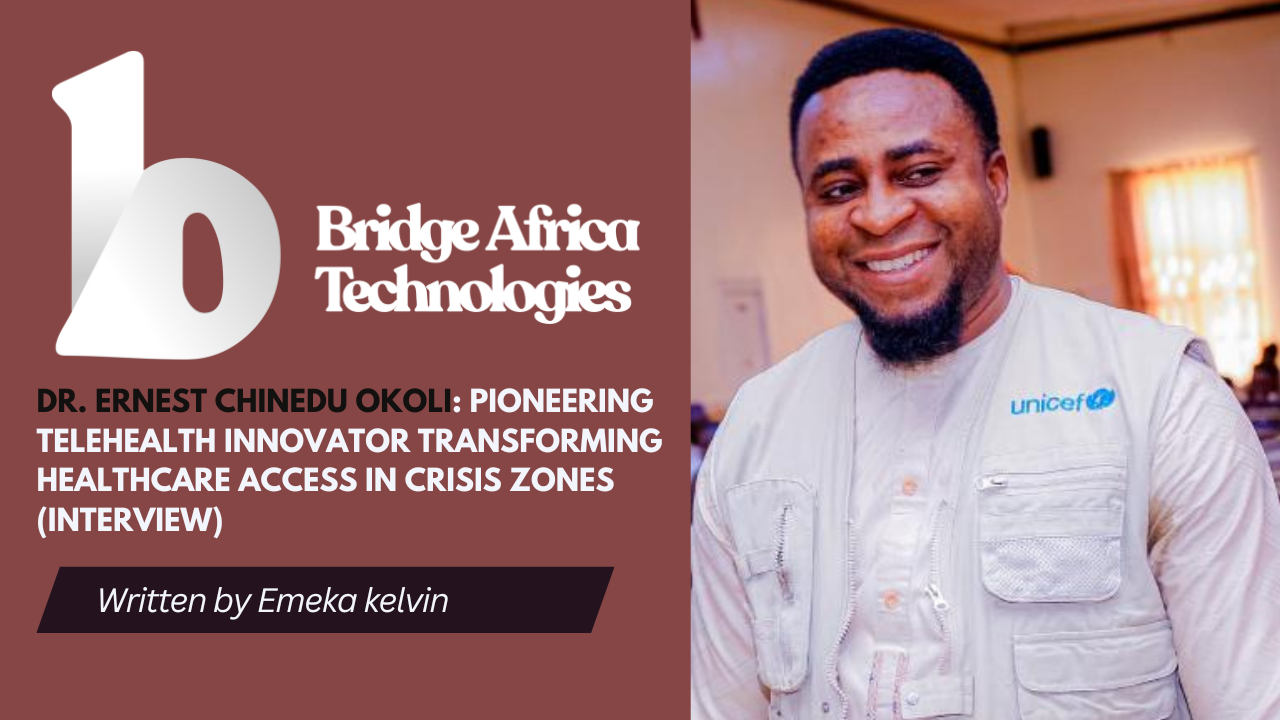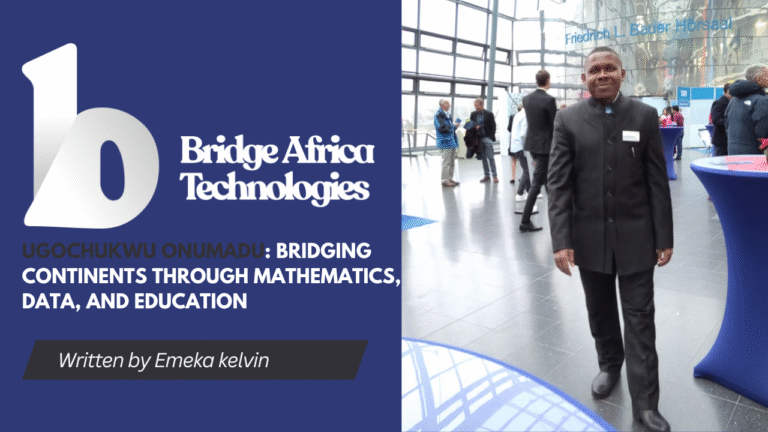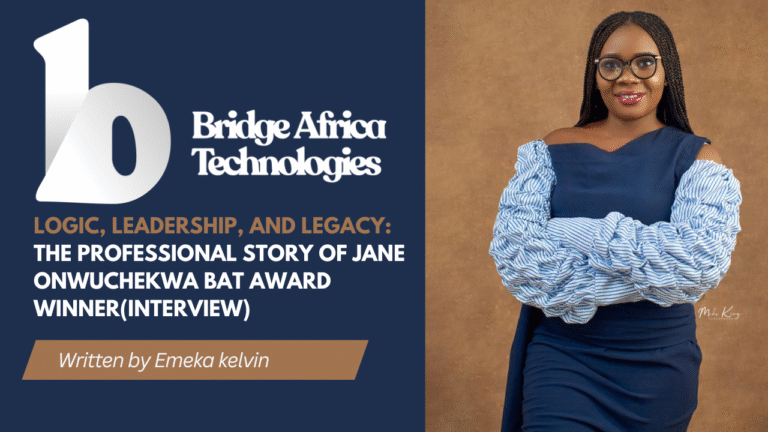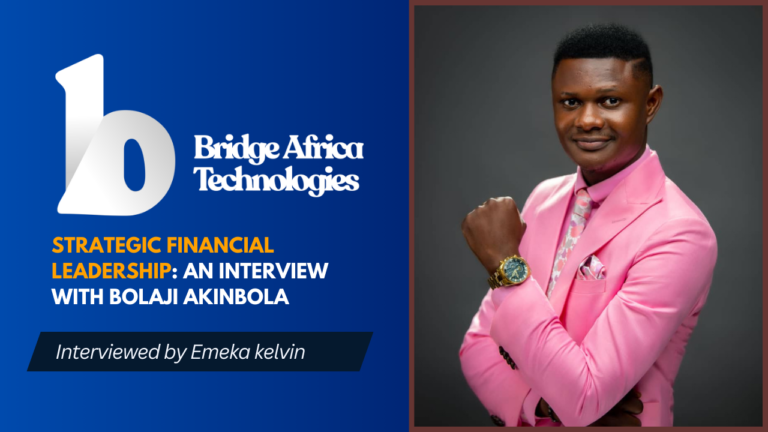“Innovation in healthcare is not about technology alone—it’s about understanding the people, reaching the forgotten, and building systems that serve everyone, especially in times of crisis.”
— Dr. Ernest Chinedu Okoli
Dr. Ernest Chinedu Okoli is a globally recognized medical doctor, public health expert, and healthcare innovator whose career has been defined by one unwavering mission: to bridge the healthcare gap for underserved and crisis-affected communities through groundbreaking digital health interventions. With over a decade of experience working with prestigious global institutions, including UNICEF and UNFPA, Dr. Okoli has championed the use of telemedicine and mobile clinics to deliver lifesaving care to some of the most vulnerable populations across Nigeria.
Currently serving as a Senior Medical Officer and State Health Team Lead at UNICEF, Dr. Okoli leads integrated health responses in fragile settings, designing and deploying scalable telehealth platforms that connect remote patients with specialists for maternal and child health consultations, chronic disease management, and emergency care. His leadership during humanitarian emergencies, including the COVID-19 pandemic, helped revolutionize care delivery in hard-to-reach areas, ensuring real-time diagnostics and continuity of care where traditional systems failed.
Beyond clinical service, Dr. Okoli has been instrumental in policy influence and capacity building, training hundreds of healthcare workers on the adoption of digital health solutions, enhancing public health surveillance systems, and advising on strategies that align with global standards from the WHO and CDC. His innovations have not only transformed frontline service delivery but have also reshaped Nigeria’s emergency preparedness frameworks.
In recognition of his pioneering efforts, Dr. Okoli was awarded the BAT Award of Excellence in Health Innovation (2023) and has been featured in major media outlets such as Vanguard, Washington Post, and Nigerian Tribune. His academic contributions include multiple peer-reviewed publications on topics ranging from vaccine hesitancy to sustainable health financing in humanitarian contexts.

READ ALSO: BAT Most Influential Women In Tech In Nigeria
From early roles supporting displaced communities in Ukraine to leading national SRH preparedness assessments in Nigeria, Dr. Okoli’s work stands as a testament to the power of innovation in advancing equitable healthcare. As he continues to explore new frontiers in health technology and policy reform, Dr. Okoli remains committed to building resilient health systems that leave no community behind.
Interview with Dr. Ernest Chinedu Okoli – Bridging Gaps in Global Health through Innovation
1. Dr. Okoli, can you take us back to the beginning—what influenced your decision to pursue a career in medicine and public health, especially coming from Nigeria?
Dr. Ernest: I was born and raised in Nigeria, where I witnessed firsthand the devastating consequences of inadequate healthcare infrastructure, particularly in rural and crisis-prone communities. As a young boy, I watched people lose loved ones to illnesses that could have been prevented or managed with basic care. That reality planted a seed in me. When I later had the opportunity to study medicine in Ukraine, I was driven not just by a desire to treat patients but to understand the broader systems that either enable or hinder access to care.
My transition into public health came naturally; it allowed me to zoom out and tackle the structural challenges affecting healthcare delivery. For me, medicine is not just about the stethoscope; it’s about strategy, innovation, and policy. That’s where I’ve found my true calling working to build systems that make quality care accessible to the most underserved.
2. You’ve had the unique experience of working with international organizations like UNICEF and UNFPA. What has that journey been like, and how has it shaped your approach to healthcare innovation?
Dr. Ernest: My journey with UNICEF and UNFPA has been both humbling and transformative. Working in conflict zones and underserved areas has exposed me to the raw urgency of healthcare needs. When you are deployed to communities where people have to travel hours for basic consultations or where outbreaks like cholera or COVID-19 hit fragile systems you learn to think fast, act decisively, and innovate under pressure.
At UNICEF, I led projects that integrated telehealth into maternal and child health programs. We deployed mobile clinics equipped with diagnostic tools and trained health workers to consult remotely with specialists. These experiences taught me that innovation must be practical and people-centered. It’s not about flashy technology; it’s about saving lives, building trust, and reaching people where they are.
3. One of your most celebrated projects is the development of scalable telemedicine platforms in rural Nigeria. Could you walk us through how this project came to life and what it achieved?
Dr. Ernest: The telemedicine project was born out of necessity. During the height of the COVID-19 pandemic, many rural communities were completely cut off from health services. Pregnant women couldn’t access antenatal care, and patients with chronic conditions like diabetes and hypertension had nowhere to turn.
We designed a solution that merged technology with mobility mobile health units fitted with diagnostic equipment, tablets, and solar-powered connectivity. These units could move from one community to another, offering real-time consultations with doctors in urban centers. We integrated the system with immunization tracking, maternal health services, and emergency response protocols.
The results were beyond what we had imagined: thousands of consultations delivered, maternal deaths reduced, and a significant increase in childhood immunization rates. It proved that with the right model, digital health can be a powerful equalizer.
4. You were awarded the BAT Award of Excellence in Health Innovation in 2023. What did that recognition mean to you, and how has it influenced your path forward?
Dr. Ernest: Receiving the BAT Health Innovation Award in 2023 was a deeply gratifying moment. Not just for me personally, but for every team member, partner, and health worker who made those projects a reality. The award validated the years of work we put into pushing boundaries and reimagining how care can be delivered in fragile settings.
It also brought more visibility to the importance of innovation in public health—especially in Africa. Recognition from a platform like BAT gave me a renewed sense of purpose. It has opened doors for collaboration, inspired younger professionals in the field, and reinforced my commitment to building health systems that are resilient, inclusive, and future-ready.
5. What are some of the major challenges you’ve faced in implementing telehealth in conflict-affected regions, and how did you overcome them?
Dr. Ernest: There are multiple layers of challenges. Infrastructure is the first limited internet, poor roads, and power outages make it difficult to deploy even the most basic health services. Then there’s resistance from local communities who are sometimes skeptical of remote consultations.
We overcame these through grassroots engagement. Before deploying a mobile unit, we always conducted community dialogues, involved local leaders, and recruited and trained local health workers. We didn’t just bring technology, we built trust.
On the technical side, we had to tailor our systems to function offline or in low-bandwidth environments. We also prioritized simple, intuitive user interfaces to make it easy for frontline workers to use. Flexibility and local ownership have been the keys to success.
6. Many of your publications explore vaccine hesitancy, health financing, and emergency preparedness. What drives your academic work, and how does it intersect with your fieldwork?
Dr. Ernest: My academic work is directly inspired by the challenges I see on the ground. For example, when we encountered vaccine hesitancy in Northern Nigeria, I decided to study the root causes and wrote on the subject. Similarly, in humanitarian settings, I saw how fragmented financing models left communities exposed. That pushed me to research sustainable health financing strategies.
I believe that real-world problems should inform research, and research should, in turn, inform policy and practice. By documenting our experiences and proposing solutions, we contribute to a global conversation and make room for scalable, evidence-based impact.
7. As a Nigerian doctor with international experience, what are your thoughts on the future of healthcare innovation in Africa—and what role do you see yourself playing in it?
Dr. Ernest: Africa is at a crossroads. We have immense challenges, yes but also immense potential. Young populations, rising mobile connectivity, and increasing interest in digital health make this an exciting time. I believe the future lies in community-driven, tech-enabled healthcare that responds to local realities.
Personally, I see myself continuing to push for systems that are not only innovative but sustainable. My dream is to see telehealth fully integrated into national health systems especially in emergency response planning, maternal health, and disease surveillance. I want to mentor the next generation of public health innovators and continue advocating for policies that close the healthcare gap.
8. Finally, what message would you give to young professionals in Africa who want to make a difference in public health or healthcare innovation?
Dr. Ernest: I would tell them: start where you are, use what you have, and never underestimate the value of your voice and ideas. The healthcare challenges we face in Africa are daunting, but they’re not insurmountable. Innovation doesn’t always mean high-tech, it means problem-solving.
Be curious. Stay grounded in your community. Collaborate across sectors. And most importantly, be relentless. You’ll hear “no” a lot. But if you’re focused on impact, that “no” becomes fuel.
We need more young Africans solving African problems with African solutions. The future of public health on this continent belongs to those who are willing to do the hard, often invisible work and I believe that future is incredibly bright.
Closing Interview Statement – Dr. Ernest Chinedu Okoli
As we wrap up this deeply insightful conversation with Dr. Ernest Chinedu Okoli, one thing is abundantly clear: impact is not measured merely by titles or accolades, but by the lives touched, systems changed, and futures made possible through vision and perseverance.
From his early days witnessing healthcare disparities in Nigeria to leading life-saving telehealth innovations across conflict-affected regions, Dr. Okoli has consistently operated at the intersection of compassion and cutting-edge public health solutions. His work with UNICEF and UNFPA has redefined how healthcare is delivered in hard-to-reach areas bringing technology to the doorstep of those who need it most. Whether through his mobile clinics, his role in shaping national emergency preparedness policies, or his scholarly contributions to vaccine hesitancy and sustainable healthcare financing, Dr. Okoli continues to set a standard for excellence that resonates far beyond borders.
More than just a medical doctor, he is a changemaker, one whose journey is as inspiring as it is instructive. The 2023 BAT Award for Health Innovation stands as a formal recognition of his relentless drive to improve systems, but perhaps his greatest award is the hope he restores in communities that have long been overlooked.
Bridge Africa Technologies is proud to recognize Dr. Ernest Okoli as one of the Nigerians raising the bar on a global scale. His story serves as a shining example of what is possible when brilliance meets purpose and when one is bold enough to act not just as a healer, but as a builder of lasting solutions.
To every young Nigerian looking to make a mark in healthcare or any field, Dr. Okoli’s path reminds us that your origin is not your limitation. With knowledge, empathy, and unwavering commitment, you can chart a course that transcends borders and transforms lives.
Dr. Ernest Okoli doesn’t just represent success he embodies what it means to serve with impact. And the world, without a doubt, is better for it.
